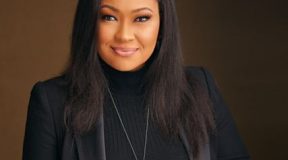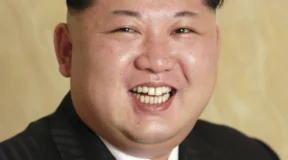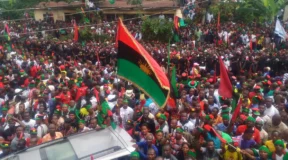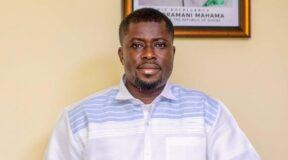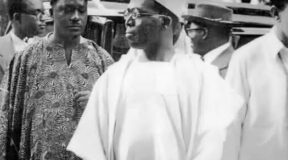2023 WAZOBIA Presidential Contest: The Fears Of Obi, Atiku, Tinubu
OpenLife Nigeria reports that next year’s general election, which kicks off with the presidential run on Saturday, February 25, is 177 days away on this day, September 1, 2022.
But the current standing of the major presidential candidates and their parties, gleaned from assessment of public opinion, is still too close to call, even though campaigns are yet to officially begin.
After the June 9 deadline set by the Independent National Electoral commission (INEC) for political parties to elect their presidential standard bearers, eight candidates emerged and are set to be on the ballot next year.
They are Malik Ado-Ibrahim, Young Progressives Party (YPP); Rabiu Musa Kwankwaso, New Nigeria Peoples Party (NNPP); Omoyele Sowore, African Action Congress (AAC); Peter Obi, Labour Party (LP); Adewole Adebayo, Social Democratic Party (SDP); Kola Abiola, Peoples Redemption Party (PRP); Asiwaju Bola Tinubu, All Progressives Congress (APC); and Atiku Abubakar, Peoples Democratic Party (PDP).
Of the eight candidates on INEC’s list, three have marked themselves out from the lot, and they have since dominated the turf, measuring, albeit for now, in networking, crowd-pulling, and awareness creation.
The three candidates are PDP’s Atiku, APC’s Tinubu, and LP’s Obi, while on the extreme fringe is NNPP’s Kwankwaso, who could help shape the fortunes of any of the candidates, if he eventually decides to align or form alliances.
Some of the factors that may count, shape and swing the equation in favour of the candidates include the scorecard of the APC administration, such as the lingering insecurity, poor economic performance, and the rise in corruption. Unfortunately, they were the main campaign topics and the three factors that brought the APC government to power in 2015.
Much as the ages of the candidates are also a critical factor, Tinubu and Atiku have an escape route in their running mates. In other words, if anyone is voting Atiku, he would look at Ifeanyi Okowa, and if it is Tinubu, there is a Kashim Shettima to consider as a huge strength to the joint ticket.
The proper campaign kick-off is still some days away, according to INEC’s timetable and schedule of activities. The three most prominent candidates have yet to start pitching their debates on the real issues affecting the nation today.
Interestingly, the 2023 election is beginning to look like a repeat of the 1979 scenario, which produced regional champions, across the then parties like the Unity Party of Nigeria (UPN), National Party of Nigeria (NPN), Nigerian Peoples Party (NPP), and the Great Nigerian Peoples Party (GNPP).
In 1979, there were just 19 states, while there are currently 36 states plus the Federal Capital Territory (FCT). The six geopolitical zones nationwide were also no there in 1979.
It was one monolithic north and the south in the 1979 election. But the equations have changed significantly with the geopolitical zones, which now vote in different ways, albeit with largely predictable patterns. But this election is tilting too much in the direction of regional champions, a development many believe is not good for the country’s unity.
Perhaps, Atiku saw through this danger, when he said recently that he might consider a Government of National Unity (GNU) if elected president, a move which appears the only healing balm post-2023 general election.
But looking at the mechanics of the current campaign structures across the parties and the challenges of winning the presidential election, it is still too close to call. This indicates that a sweeping victory might be impossible. A unity government might ultimately be a life-saver from the pending political conflagration.
In the North-west, for example, the battle is between APC and PDP. While in APC, the current internal contradictions would play the ruling party against itself, save for Zamfara, which is about the only well-put-together APC state for now, after the warring camps had reconciled, the zone seems safe for PDP.
What this means is that, Kano may be a three-horse race, and Kwankwaso is likely to swing towards either Tinubu or Atiku, in the ancient city. As far as Kano is concerned, Kwankwaso is the beautiful bride. But other states like Kebbi, Jigawa, Katsina, Sokoto, including Kaduna are already pitching for PDP with the situation reports.
Aside from the internal contradictions, one other factor that may determine the North-west election is, evidently, the choice of a Kanuri man as Tinubu’s running mate, when the votes of the Kanuri is quite insignificant, compared to the Hausa/Fulani in the zone. The APC Muslim-Muslim ticket may not be the problem. But the LP, without a doubt, has near-zero presence here, while the NNPP would help sculpt the Kano battle.
The North-east, which may also settle for the number one position as being offered by PDP, as against the number two the ruling party is offering, may see the APC corner all of the Kanuri votes, because of the Kashim Shettima factor, although coming largely from Borno, his state. But, again, the Hausa/Fulani population may write off this voting pattern across other states in the zone.
Bauchi, Adamawa, and Taraba are, for example, PDP states. The only time Bauchi swung the other way was when a former governor of the state, Isa Yuguda, allegedly, indulged in anti-party activities in 2015. LP is not an issue here, and neither is NNPP.
Expectedly, the North-central may be the swing zone, even though the Middle Belt, particularly, Benue, is by its frustration now anti-APC, given the heat of insecurity it has suffered in almost eight years of the current administration.
Interestingly, the APC governorship candidate in Benue, Rev. Fr. Hyacinth Alia, is reportedly the most popular and that makes the state dicey for the PDP. But some of the states in the zone may swing either way, with a majority surging in the PDP direction, including Kwara and Niger. Neither the LP nor the NNPP stand a chance here, too.
The South-west is APC’s strongest zone and Tinubu’s main base. But, unfortunately, it is going to be either a three- or two-horse race in all the states in this zone, including Lagos, where the LP is expected to put up some surprises. Tinubu will definitely hold on to the South-west, but the Obi factor may diminish his gains, while the PDP will vehemently assert itself.
For example, while the youth, essentially children of the elite, are likely going to vote for Obi, their parents, who are the older generation, are more likely going to vote for APC or PDP. But the voting pattern of these youths will not be replicated in the rural areas, where the PDP and the APC logos are what the rural dwellers know.
Coming to the South-south and the South-east, these are arguably traditional PDP zones, which unfortunately, have been intruded by the OBIdient movement and the sentiments for a president of the Igbo extraction.
What this means, therefore, is that the battle in both the South-south and South-east is going to be a two-horse race, with the APC in complete relegation.
Indeed, APC is likely not to even bother about the two zones, reason it often dismisses its voting strength, especially, that of the South-east.
But it is important to look at how the crisis between the Rivers State governor, Nyesom Wike, and the PDP leadership may impact the two zones, outside of Rivers, as Wike is believed to have influence in some of the states.
This could mean an unintended opening for APC in the region, if the loose ends are not tidied up and ranks closed to achieve one house before the elections. This, of course, is not forgetting that many of PDP stakeholders have dismissed Wike’s case as isolated and incapable of ruining the party’s chances, but himself if he pushes too hard.
Over all, the general election next year is for the taking, largely by either Atiku or Tinubu, depending how much damage the OBIdient movement or the NNPP incursion does to either of them. It is also expected that the current reading will change once the campaigns start and the pitch in each camp comes to distinct reckoning, preparatory to the presidential run.
Chances and obstacles to victories
Atiku Abubakar
The PDP presidential candidate and former vice-president, has been around for some time, as such, the issues of experience, capacity and competence, do not arise in his case. But standing in the way of what appears his last attempt at the presidency are ‘time and chance’.
Atiku clinched the PDP ticket at a time the southern part of the country unanimously believed the presidency should return to them after President Muhammadu Buhari’s eight years. Although the argument that zoning is strictly a party thing is valid, in addition to the fact that the extrapolation of the time the PDP has spent in power does not actually cancel it out of the race; the south remains unhappy with an Atiku candidacy.
To that extent, the PDP candidate, will among other things, do more than he is currently doing to pacify the south and also assure the zone they would not be relegated in the scheme of things. These assurances must not only speak to his credibility and integrity, but must be such that the angry south can vouch for, to be able to earn their trust. If Atiku is able to sincerely pacify the south and they were truly pacified, then, the election might be his to lose.
Bola Tinubu
It is common knowledge that the candidate of the APC, Bola Tinubu, comes to the race with personality baggage. But that is not what is standing in his way. First, Tinubu must wean himself of the entitlement mentality that, “emi lo kan”. It is too narcissistic. The Nigerian presidency is not an exclusive preserve of any individual or group of persons. That assertion is already considered offensive in many quarters.
Much as his handlers are doing a good job trying to tone down the manner in which it was said and fast converting it into some sort of joke, there must be a conscious effort on his part as the person, who in the fit of anger, introduced those words into the political lexicon of the country, albeit in the Yoruba language, to bring closure to the offensive understanding of it.
But, more importantly, his preference for a Muslim-Muslim ticket, has yet to be well defended. The position that he preferred same faith ticket on the strength of capacity and competence, is even the more insensitive to the Northern Christians in particular, and the Christian community in general. That was a poor ground for making a choice that many consider insensitive to the mood of the nation and her current realities.
Another equally crucial path to victory for Tinubu and compulsorily too, is the need to heal the party across the states of the federation and achieve one house before the election. The APC family nationwide is in crisis and disarray, the reason the party is witnessing impossible defections almost every day. People are hurting. Former governors are battling their successors, while a majority of the National Assembly members, who were not returned are so bitter that many of them had deliberately stayed back to undo the party. He needs to move round quickly, close ranks and ensure everyone heals before the elections. It is key for him. APC is not one at the moment.
Lastly, the APC brand is in tatters at the moment. The first man, who drove the vehicle is almost grounding it. The party needs serious image laundering. Yes, the Buhari administration has done a lot in terms of infrastructure development, but what are these with growing insecurity, terrible economy and daily increasing institutional corruption? The platform needs to be salvaged and above all, Tinubu cannot run away from the Buhari brand. The more he does that, the more things will get worse. He must inherit it, explain their challenges and offer hope, at the very least. It is the way to go.
Peter Obi
The OBIdient movement is cascading the political firmament of the country.
But many are afraid about the possibility of sustaining the momentum till election day.
This fears arise from the over view that the movement has not properly permeated many parts of the rural Nigeria, apart from a few city centres, where the social media savvy Nigerians are dutifully at work. Politics rests solely on structure – structure that is tested over time and can withstand a whirlwind of unintended occurrences.
Interestingly, for Obi, and a positive turn of events, Nigerians, both home and abroad, had resolved to do crowdfunding for him, proposing to raise some $150 million and N100 billion for his campaigns. If this was realised, all that the LP candidate and his team need to do is to properly coordinate, setup structures across the over 8,809 wards in the country and ready to also man the over 119,973 polling units in the country.
Source: ThisDay Newspaper



